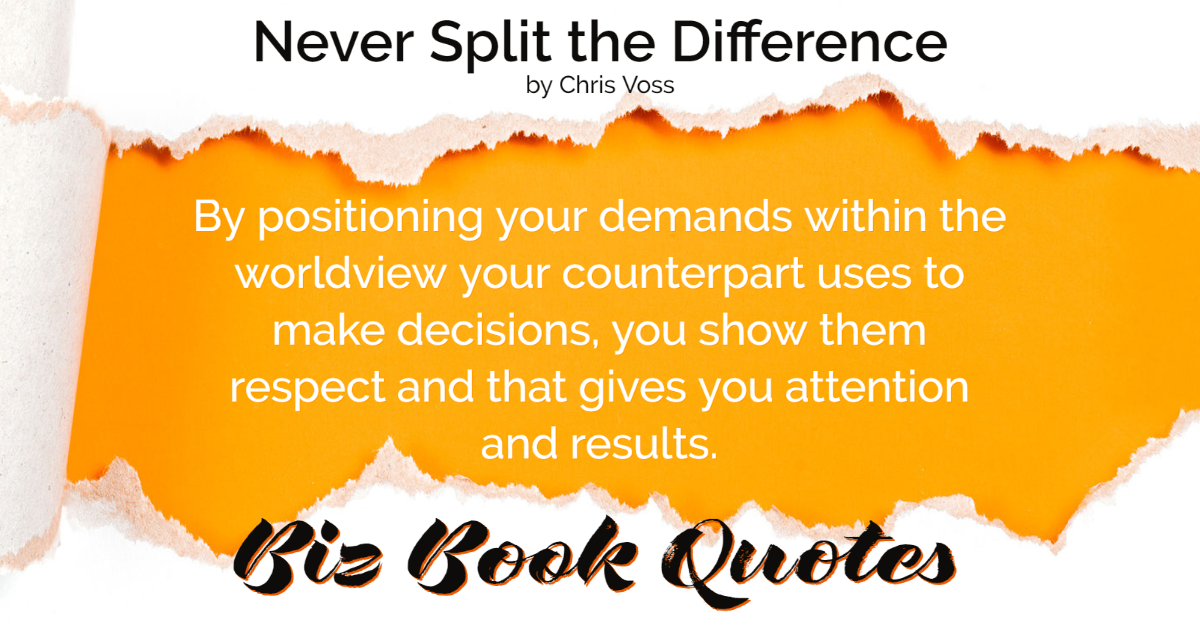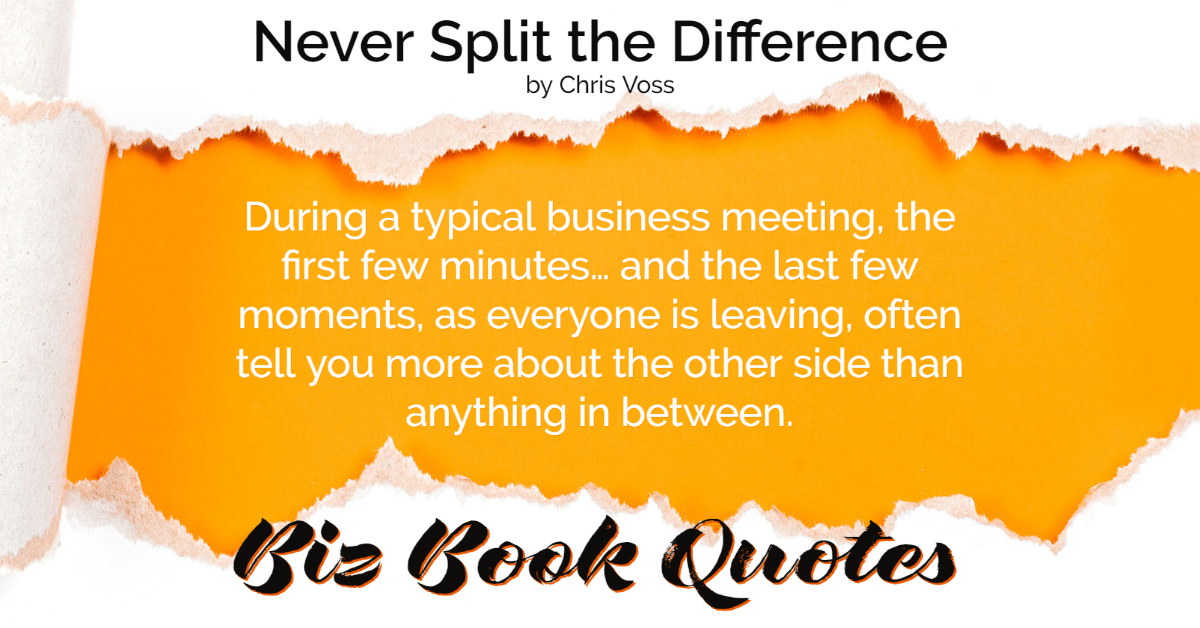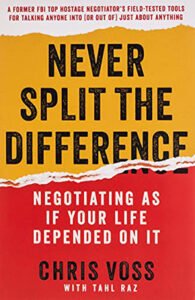|

|
Never Split the Difference:
As effective negotiators have long known and psychologists have repeatedly proved, potential losses loom larger in the human mind than do similar gains.
|
223 |
|

|
Never Split the Difference:
Once you’ve understood your counterpart’s worldview, you can build influence.
|
225 |
|

|
Never Split the Difference:
By positioning your demands within the worldview your counterpart uses to make decisions, you show them respect and that gives you attention and results.
|
228 |
|

|
Never Split the Difference:
Research by social scientists has confirmed something effective negotiators have known for ages: namely, we trust people more when we view them as being similar or familiar.
|
229 |
|

|
Never Split the Difference:
We’re all hungry for a map to joy, and when someone is courageous enough to draw it for us, we naturally follow.
|
230 |
|

|
Never Split the Difference:
…when you recognize that your counterpart is not irrational, but simply ill-informed, constrained, or obeying interests that you do not yet know, your field of movement greatly expands.
|
236 |
|

|
Never Split the Difference:
No matter how much research you do, there’s just some information that you are not going to find out unless you sit face-to-face.
|
236 |
|

|
Never Split the Difference:
During a typical business meeting, the first few minutes… and the last few moments, as everyone is leaving, often tell you more about the other side than anything in between.
|
237 |
|

|
Never Split the Difference:
People generally fear conflict, so they avoid useful arguments out of fear that the tone will escalate into personal attacks they cannot handle.
|
241 |
|

|
Never Split the Difference:
Skilled negotiators have a talent for using conflict to keep the negotiation going without stumbling into a personal battle.
|
242 |











